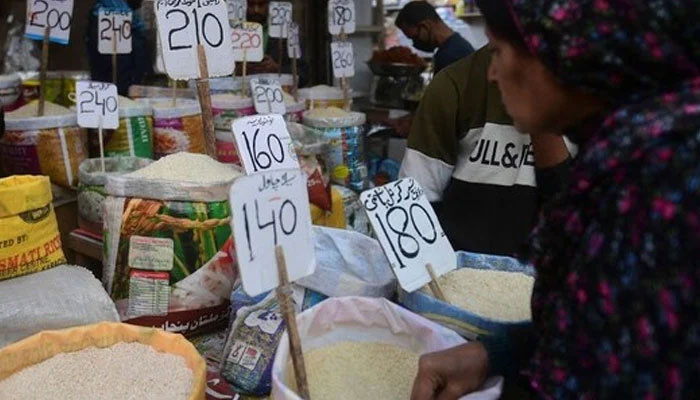Taxing issues
Ever since FBR introduced ‘Tajir Dost Scheme' traders have been up in arms
Traders across the country observed a nationwide strike on Wednesday with support from traders’ associations and some political parties to protest the rise in electricity bills and new taxes imposed on shop owners. Ever since the Federal Board of Revenue (FBR) introduced the ‘Tajir Dost Scheme’ which is aimed at bringing traders and wholesalers into the tax net, traders have been up in arms. On Thursday, the Markazi Tanzeem-e-Tajran Pakistan announced it will continue to resist the ‘Tajir Dost Scheme’ and other economic policies of the government that affect the traders’ community. It was announced that in the second phase, the traders’ community was considering giving a call for a three-day shutter-down strike followed by a nationwide wheel-jam strike if the government did not accept their demands. As a last option, the traders’ community would go on an indefinite shutter-down strike across the country. The government has said it will not budge from its position and has vowed to bring the traders into the tax structure.
This standoff underscores a long-standing issue in Pakistan’s economic landscape: the inability of successive governments to enforce a fair and equitable tax system that includes all sectors of the economy. The power of the retail sector to mobilize against tax reforms is not new. Since 1998, various governments have tried – and failed – to bring traders into the tax net. Even during times of strong political mandates or military rule, these efforts have been thwarted by the immense clout wielded by trader lobbies. From Nawaz Sharif’s administration to Pervez Musharraf’s military regime, and more recently under the PTI government and then the earlier PDM government, every attempt to tax the retail sector has met with fierce resistance, leading to rollbacks and compromises that perpetuate the status quo. This pattern of resistance has significant implications for Pakistan’s economy. According to official data, only 270,000 out of 3.1 million retailers filed tax returns in the last tax year, contributing a mere Rs34 billion to the national treasury. In stark contrast, the salaried class – unable to evade taxes due to automatic deductions – contributed Rs375 billion during the same period. With rising inflation, increased electricity tariffs, and stagnant wages, the burden on the salaried class is only growing heavier. This situation is not just unfair; it is unsustainable.
Financial experts argue that the government’s continued reliance on taxing the salaried class, while powerful sectors like retail, agriculture and real estate evade their fair share, is a recipe for economic instability. The current protests by traders are a classic example of the sway these sectors have over the government, using strikes and economic disruptions to protect their interests at the expense of broader fiscal reforms. The government’s response to this challenge will be a litmus test for its commitment to genuine economic reform. While there is understandable scepticism given past failures, the government must stand firm in its resolve to bring the retail sector into the tax net. The stakes are too high to allow a repeat of history, where powerful lobbies dictate tax policy to the detriment of national interests. Pakistan’s economic future depends on broadening the tax base and ensuring that all sectors contribute their fair share. This is not just a matter of fiscal policy but one of economic justice. The government must resist the pressure to back down and instead take decisive action to end the era of selective taxation. It is time to create a tax system that is fair, equitable, and inclusive of all sectors, ensuring that the burden of supporting the nation’s economy is shared by all, not just the voiceless salaried class.
-
 Cuba-Canada Travel Advisory Raises Concerns As Visitor Numbers Decline
Cuba-Canada Travel Advisory Raises Concerns As Visitor Numbers Decline -
 Anthropic Buys 'Super Bowl' Ads To Slam OpenAI’s ChatGPT Ad Strategy
Anthropic Buys 'Super Bowl' Ads To Slam OpenAI’s ChatGPT Ad Strategy -
 Prevent Cancer With These Simple Lifestyle Changes
Prevent Cancer With These Simple Lifestyle Changes -
 Air Canada Flight Diverted St John's With 368 Passengers After Onboard Incident
Air Canada Flight Diverted St John's With 368 Passengers After Onboard Incident -
 Experts Reveal Keto Diet As Key To Treating Depression
Experts Reveal Keto Diet As Key To Treating Depression -
 Inter Miami Vs Barcelona SC Recap As Messi Shines With Goal And Assist
Inter Miami Vs Barcelona SC Recap As Messi Shines With Goal And Assist -
 David Beckham Pays Tribute To Estranged Son Brooklyn Amid Ongoing Family Rift
David Beckham Pays Tribute To Estranged Son Brooklyn Amid Ongoing Family Rift -
 Jailton Almeida Speaks Out After UFC Controversy And Short Notice Fight Booking
Jailton Almeida Speaks Out After UFC Controversy And Short Notice Fight Booking -
 Extreme Cold Warning Issued As Blizzard Hits Southern Ontario Including Toronto
Extreme Cold Warning Issued As Blizzard Hits Southern Ontario Including Toronto -
 Lana Del Rey Announces New Single Co-written With Husband Jeremy Dufrene
Lana Del Rey Announces New Single Co-written With Husband Jeremy Dufrene -
 Ukraine-Russia Talks Heat Up As Zelenskyy Warns Of US Pressure Before Elections
Ukraine-Russia Talks Heat Up As Zelenskyy Warns Of US Pressure Before Elections -
 Lil Nas X Spotted Buying Used Refrigerator After Backlash Over Nude Public Meltdown
Lil Nas X Spotted Buying Used Refrigerator After Backlash Over Nude Public Meltdown -
 Caleb McLaughlin Shares His Resume For This Major Role
Caleb McLaughlin Shares His Resume For This Major Role -
 King Charles Carries With ‘dignity’ As Andrew Lets Down
King Charles Carries With ‘dignity’ As Andrew Lets Down -
 Brooklyn Beckham Covers Up More Tattoos Linked To His Family Amid Rift
Brooklyn Beckham Covers Up More Tattoos Linked To His Family Amid Rift -
 Shamed Andrew Agreed To ‘go Quietly’ If King Protects Daughters
Shamed Andrew Agreed To ‘go Quietly’ If King Protects Daughters




